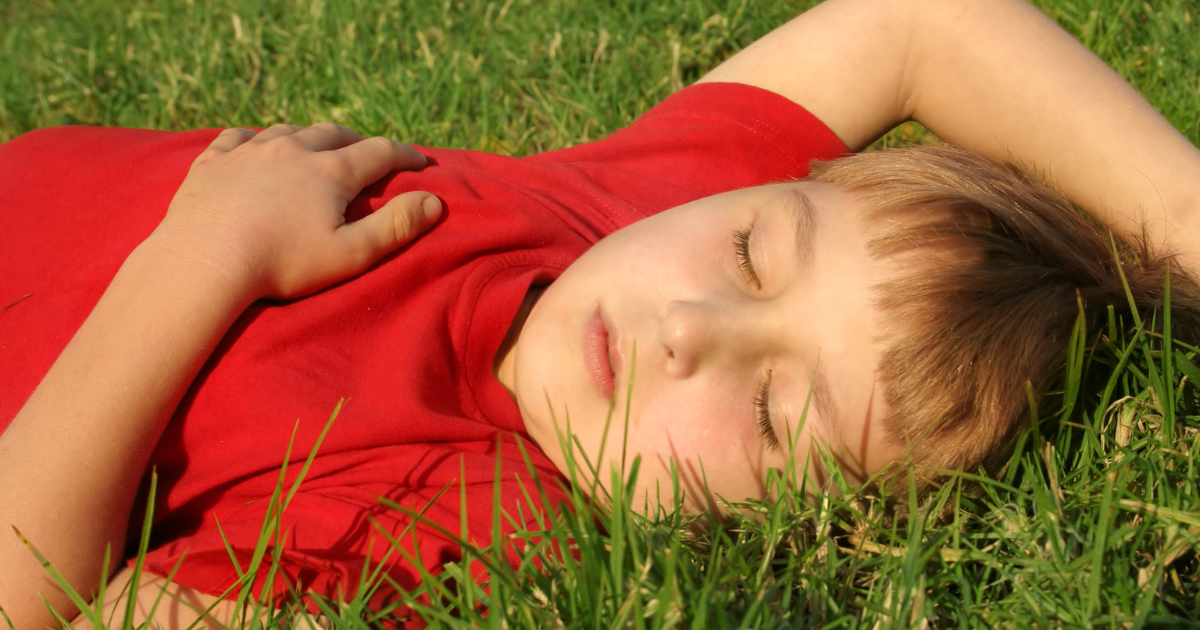Summary
Spring and pollen season can bring discomfort for many families, especially for children with neuroinflammatory conditions such as autoimmune disorders, brain and immune dysregulation, or neurological sensitivities. When allergy season hits, symptoms can go far beyond a runny nose or itchy eyes. Many parents notice brain fog, mood changes, sleep disruption, and difficulty focusing in their children. The hidden cause may be histamine overload.
Histamine is a natural chemical in the body that helps regulate immune responses, digestion, and brain activity. However, when too much histamine builds up or when the body cannot break it down properly, it can lead to both physical and neurological symptoms. In sensitive children, this imbalance can trigger emotional outbursts, restlessness, or regression in behavior and learning.
High histamine levels can affect the brain because histamine acts as a neurotransmitter that influences mood, attention, and the sleep-wake cycle. When the brain becomes overloaded, children may experience foggy thinking, irritability, or anxiety. For kids with conditions like PANS, PANDAS, ADHD, autism, or chronic infections, histamine overload can make symptoms worse.
The good news is that parents can take practical steps to support their child’s histamine balance. A low-histamine diet, gut health support, and supplements that assist with histamine breakdown can help reduce inflammation and calm the nervous system. Reducing environmental allergens and improving sleep and hydration can also make a significant difference.
If your child experiences mood, focus, or sleep issues during allergy season, it may be time to look deeper into histamine. Explore our Spring Allergy Relief Bundle, created to help manage histamine naturally, calm inflammation, and support your child’s brain and immune health.
FAQS
Q1. What is histamine overload? Histamine overload happens when the body makes or consumes more histamine than it can break down. This extra histamine can cause allergy-like symptoms in the body and inflammation in the brain, leading to mood changes, brain fog, or trouble sleeping.
Q2. How does histamine affect the brain? Histamine acts as a chemical messenger in the brain that helps control mood, focus, and sleep. When levels are too high, it can overstimulate the nervous system and cause symptoms such as irritability, anxiety, and poor concentration.
Q3. What are common signs of histamine overload in children? Children with histamine overload may experience anxiety, emotional ups and downs, brain fog, restless sleep, focus problems, congestion, sneezing, or itchy eyes. These symptoms often get worse during allergy season.
Q4. Why are children with neuroinflammatory conditions more sensitive to histamine? Children with conditions like PANS, PANDAS, ADHD, autism, or Lyme disease often have higher inflammation and a harder time breaking down histamine. This makes them more likely to react with neurological symptoms when histamine levels rise.
Q5. How can parents help lower histamine naturally? Parents can help by trying a low-histamine diet, improving gut health, and limiting allergen exposure. Supplements like DAO, vitamin C, quercetin, and probiotics may also support the body’s ability to clear histamine.
Q6. When should families seek professional support? If your child experiences ongoing brain fog, mood swings, or anxiety that worsen during allergy season, it may be time to work with a practitioner who understands histamine and neuroimmune health. A professional can uncover triggers and create a personalized plan for healing.
Introduction
Spring is beautiful. But it’s also pollen season. And for many of the families I work with, it’s a time when their child’s symptoms flare up. Anxiety, attention struggles, restless sleep, and behavioral challenges often intensify just as the trees bloom and the pollen count rises.
You may have chalked this up to seasonal allergies and brain fog, and you’re not wrong. But what’s really at the root of these seasonal flares? Histamine. Histamine doesn’t just affect the nose or skin. It can also impact the brain.
What does histamine do?
Histamine is a chemical produced by mast cells as part of the body’s immune response. In addition to the histamine our bodies produce, we’re also exposed to histamine through certain foods we eat. Yes, histamine can cause problems, but it isn’t all bad. Histamine plays several important roles in the body, including:
✔ Helping regulate the sleep/wake cycle and keeping the brain alert
✔ Enhancing memory and cognitive function
✔ Triggering stomach acid (HCL) release to support digestion
✔ Activating the immune system in response to threats
✔ Acting as an inflammatory messenger during injury or illness
When does histamine become a problem?
When the body is functioning properly, an enzyme called DAO (diamine oxidase) breaks down excess histamines, especially the exogenous histamines we get through our diet.
Problems begin to occur when the body doesn’t produce enough DAO, resulting in too many
inflammatory histamines flooding the body. So while histamine is important, too much of it—or a reduced ability to break it down—can lead to problems that go far beyond sneezing, rashes, and brain fog.
DAO levels can become too low for a number of reasons. Certain medications can interfere with DAO production, or block its activity. Imbalances in the gut (such as bacterial overgrowth or gastrointestinal conditions like leaky gut and IBS) can also impair DAO production.
In addition, consuming too many histamine-rich foods or those that block DAO enzymes and trigger histamine release can overwhelm the system. When DAO levels drop too low and the body can’t effectively break down histamine, histamine can begin to accumulate, leading to what’s known as histamine intolerance.
How does histamine contribute to brain fog and other symptoms?
Histamine isn’t confined to the nose or gut. It crosses into the brain and acts as a neurotransmitter. And in sensitive children, this can trigger:
🧠 Sleep disturbances
🧠 Panic or anxiety
🧠 Mood swings or meltdowns
🧠 Brain fog and focus issues
This is especially true for children with underlying immune or neurological dysregulation, like PANS/PANDAS or autoimmune encephalitis. For them, a histamine spike (like the kind that comes with spring pollen) can overwhelm the body and cause a neurological flare.
Histamine doesn’t just affect the immune system. It plays a central role in regulating brain activity. Research shows that histamine helps control the brain’s overall level of arousal and excitability, influencing everything from sleep-wake cycles to appetite, pain response, and hormone release. In fact, histamine-producing neurons help keep us awake and alert, while specific brain cells that promote sleep work by turning those histamine neurons off.
It’s also been shown to affect learning and memory, reduce seizure activity, and regulate the release of key hormones like vasopressin, ACTH, and β-endorphin. Even basic functions like eating, drinking, and body temperature are influenced by histamine’s action in the brain. All of this helps explain why an overloaded histamine system can cause such a wide range of symptoms in children—from sleep disruption and anxiety to appetite changes, brain fog and mood instability.
The Histamine Bucket
One of the best ways to understand this is the histamine bucket analogy. Your child’s body is constantly managing histamine levels from food, environment, stress, and internal triggers. But if the histamine bucket fills faster than it can drain (through enzymes like DAO or HNMT, a nervous system enzyme that metabolizes histamine), it overflows, leading to inflammation and neurological symptoms.
That’s why looking at pollen isn’t enough. You have to look at everything that’s going into the bucket, and how you can lower the load to keep it from overflowing.
Need targeted relief for spring symptoms?
If your child’s springtime flares feel overwhelming, I’ve put together a bundle of my go-to products to help calm the immune system, support histamine breakdown, and ease inflammation and brain fog—especially during pollen season.
🌿 Check out the Spring Allergy Relief Bundle
This supplement bundle includes some of my favorite tools to help reduce histamine load and support your child’s nervous system and immune response.
Check out the Spring Allergy Relief Bundle!
The Spring Allergy Relief Bundle is designed to help manage histamine induced inflammation and reduce both physical and neurological symptoms associated with histamine overload, especially during high-pollen seasons.
Allergy Rescue offers immediate homeopathic relief for classic allergy symptoms like sneezing, watery eyes, and congestion.
HistaEze™ combines quercetin, nettle, vitamin C and bicarbonate salts to support immune balance and histamine metabolism.
Histamine Digest delivers high-dose DAO enzymes to help break down histamine from food sources, while ProBiota HistaminX replenishes the gut with histamine-neutral probiotics to promote digestive and neurological calm.
Together, these formulas offer comprehensive support for both children and adults.
In the next article, we’ll look at how histamine overload can show up across the body—from gut discomfort and skin flares to dizziness and mood shifts—and what that tells us about your child’s unique needs.
Looking for Extra Support?
If you’re looking for extra support this season, the Spring Allergy Relief Bundle includes practitioner-grade supplements I often recommend to help reduce histamine levels and support immune and nervous system balance. Take a look here.
References
https://www.ncbi.nlm.nih.gov/books/NBK28245/







